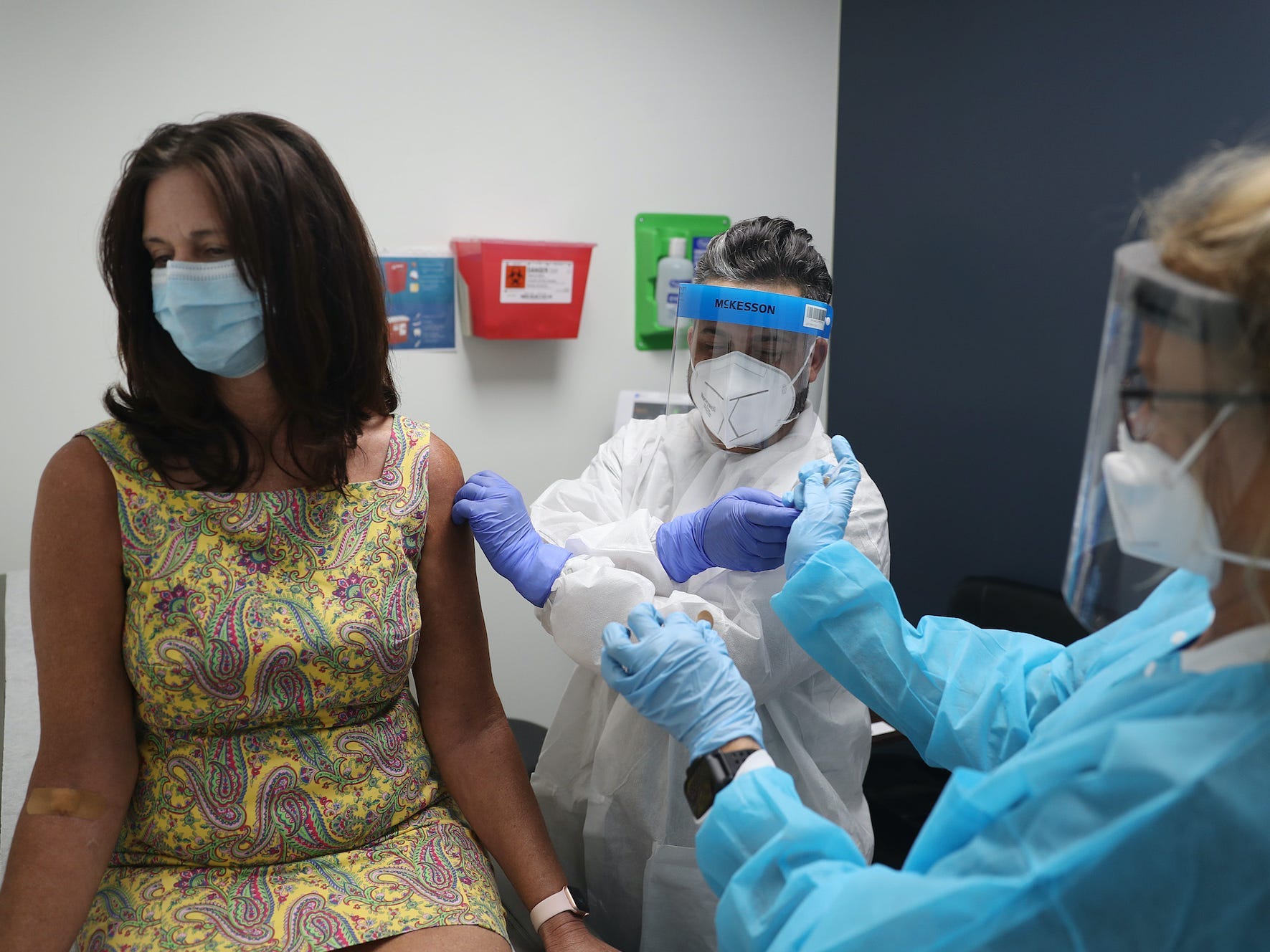
Joe Raedle/Getty Images
- US pharmaceutical giant Merck said Monday that it has stopped developing two potential COVID-19 vaccines.
- The vaccines were well tolerated in clinical trials, but failed to produce an adequate immune response.
- The company said it will focus resources on two experimental treatments for COVID-19 instead.
- Visit Business Insider’s homepage for more stories.
US pharma giant Merck has scrapped two coronavirus vaccine candidates after they failed to produce an adequate immune response in early trials, the company announced Monday.
The vaccines were generally well tolerated, but worked less well than existing COVID-19 vaccines and immunity from catching the virus, Merck said in the press release.
The results were “disappointing, and a bit of a surprise,” Nick Kartsonis, senior vice president of clinical research for infectious diseases and vaccines at Merck Research Laboratories, told Bloomberg.
The studies haven’t yet been published in a peer-reviewed journal to be scrutinized.
Merck said it would now focus on advancing two experimental treatments for COVID-19 that are in late stage development.
"In the world of pharmaceutical development, a quick kill is not a bad thing because it allows you to reposition and repurpose your assets," Kartsonis told the Wall Street Journal.
Merck is a $190-billion company, with one of the largest vaccine businesses in the world. It entered the vaccine race in May 2020, hoping to build on its success developing the first US-approved Ebola vaccine.
V590, one of Merck's COVID-19 shots, mimicked technology from the Ebola shot, using a weakened virus to trigger the immune response. Its other experimental shot, V591, was based on a measles vaccine.
Both COVID-19 candidates would have been single shots. Merck and IAVI, the vaccine co-developer for V590, had said they would make it affordable and accessible globally.
Merck's approach to vaccine development was different to Moderna's and Pfizer's, the companies that have two-dose vaccines currently authorized in the US, who utilized mRNA technology - a genetic code that triggers the immune system.
Merck said it anticipated trial results for its novel COVID-19 drugs in the coming weeks, and could ask US regulators to fast-track emergency authorization if results are positive.
Kartosonis said that one of the experimental treatments, MK-7110, could reach sick patients by the middle of the year. The US government under President Donald Trump agreed to pay Merck up to $365 million for 60,000 to 100,000 doses of MK-7110 until June 30.
Having effective COVID-19 treatments remains important, especially as new variants emerge that may be able to thwart vaccines, Kartsonis said.
